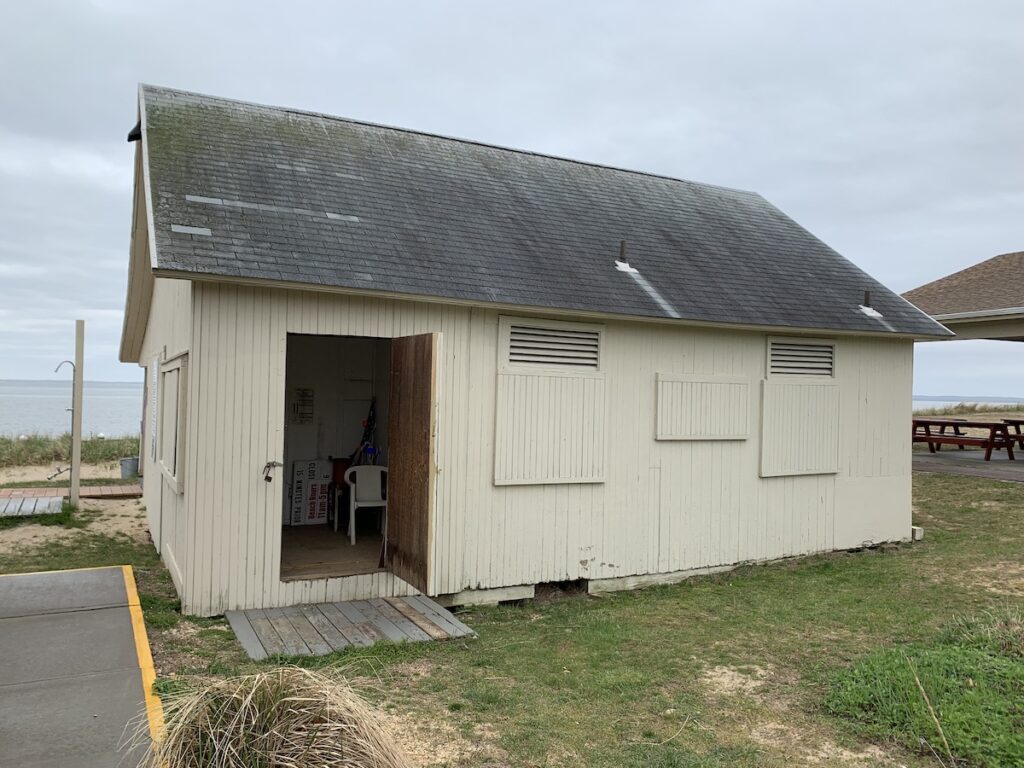Cut the crowd at inlet
Fishermen have been congregating in greater and greater numbers at Goldsmith Inlet in Peconic, and just this past weekend two men were injured in a turf fight while at least 40 fishermen were casting their lines there.
The fight was mentioned at Tuesday’s Town Board work session as one reason for reducing the number of people fishing at the inlet. Board members said they were concerned that large numbers of people congregate on the unprotected beach on weekends because they do not need town permits to park on the road.
The solution, according to the board, is to limit the number of cars at the end of Mill Lane alongside the inlet by requiring town permits at the road-end leading to the beach. A parking lot at the end of the road already allows parking by town permit only, but board members said that many who don’t have permits just park along the road. The board may also outlaw parking altogether on some portions of the road leading to the beach.
Some board members worried that fishermen, some of whom camp and erect tents on beaches at night, will just walk to the beaches if they can’t park there.
“We might as well close down the beaches at night. We’re regulating cars, but nothing in the town code allows us to regulate pedestrian traffic,” Supervisor Scott Russell said at the work session.
Councilman Al Krupski said that people who live near the water have paid heftily to live where they can have access to the beach at night. Parking at town beaches and road ends is prohibited after 10 p.m., unless drivers have town-issued night fishing permits.
Mr. Russell said that most fishermen who have been parking on Mill Lane don’t have any town permits.
“They’ll park in people’s front yards, anywhere they can,” he said. “We have more traffic patrol to enforce permits, but it’s like pressing on a water balloon, it moves somewhere else. Other towns have gotten very stringent with their beaches. People start parking where they don’t need permits.”
The town must hold a public hearing before changing the parking restrictions, and board members hope to have a public hearing notice drafted by the board’s next meeting on Sept. 14, in the hope of having new regulations in place before fishing picks up in the fall.
Noise code on way
Southold Town is working hurriedly to complete a noise ordinance and prepare a notice of public hearing on the proposed law by early September. The law is intended to focus on amplified music from commercial operations that can be heard in residential areas.
Town attorney Martin Finnegan presented the first draft of the law to the Town Board two weeks ago. It would have limited amplified noise to 65 decibels between 7 a.m. and 7 p.m. and to 50 decibels between 7 p.m. and 7 a.m. at the noisemaker’s property line. Mr. Finnegan asked the board at this week’s work session to request that the town code committee, whose recommendations were included in the draft, reconsider the hours of the restrictions.
Supervisor Scott Russell said he wanted to the law to recognize that live music might go on until later on weekends. He also said he wants the law to address venues that have loud music regularly.
Mr. Finnegan said that he’d received comments from the town Planning Board, which wants to ensure that not only property owners but anyone making noise on a property can be fined for excessive noise.
Town Board members expressed concern that the proposal’s definition of charitable events, which are exempt from the regulation, might be too broad.
“The friends of Albert Krupski, the three of them might get out of hand,” quipped Mr. Russell.
The town code committee will address those changes at a meeting next Tuesday, Aug. 31.
more geese to shoot
Councilman Krupski wants to tackle the New York State Department of Environmental Conservation’s tight restrictions on the number of Canada geese that can be shot on eastern Long Island.
The DEC’s statewide regulations allow hunters to take five Canada geese per day during the regular season, which on Long Island lasts from late November to the end of January. But on central Long Island, the DEC allows hunters to take just three geese a day and allows hunters on the East End to take just two a day.
“It’s skewed toward not controlling geese at all on the East End,” said Mr. Krupski, who plans to approach the DEC about changing the rules.
The supervisor agreed. “This is the same permitting agency that’s taking on a vast and extensive geese reduction program. They’re really not consistent in anything they do,” said Mr. Russell. He added that the current regulations seem intended to protect golf courses to the west more than East End farm fields from the depradations of large flocks of geese.








